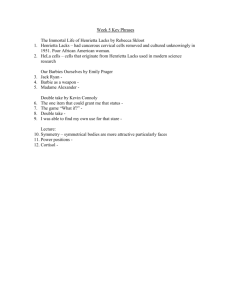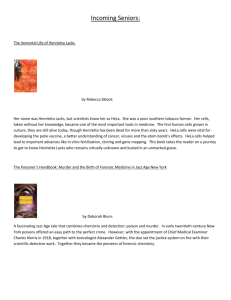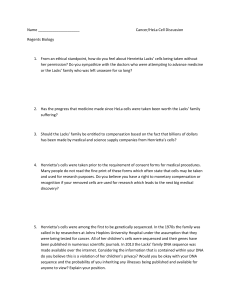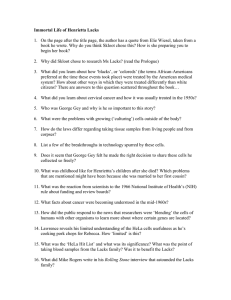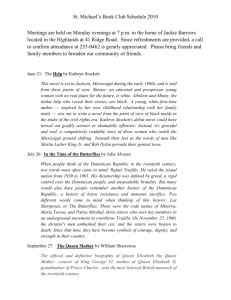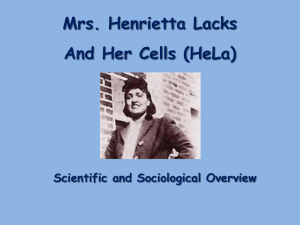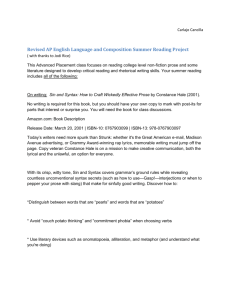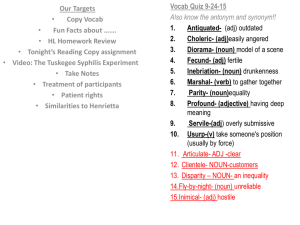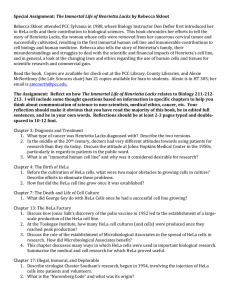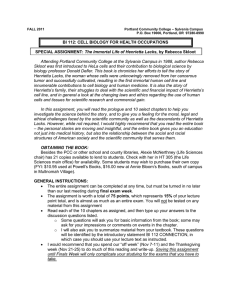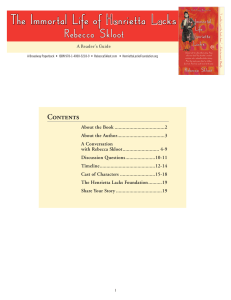HeLa Essay Contest Winners 1 Place The Universe in Henrietta Lacks
advertisement
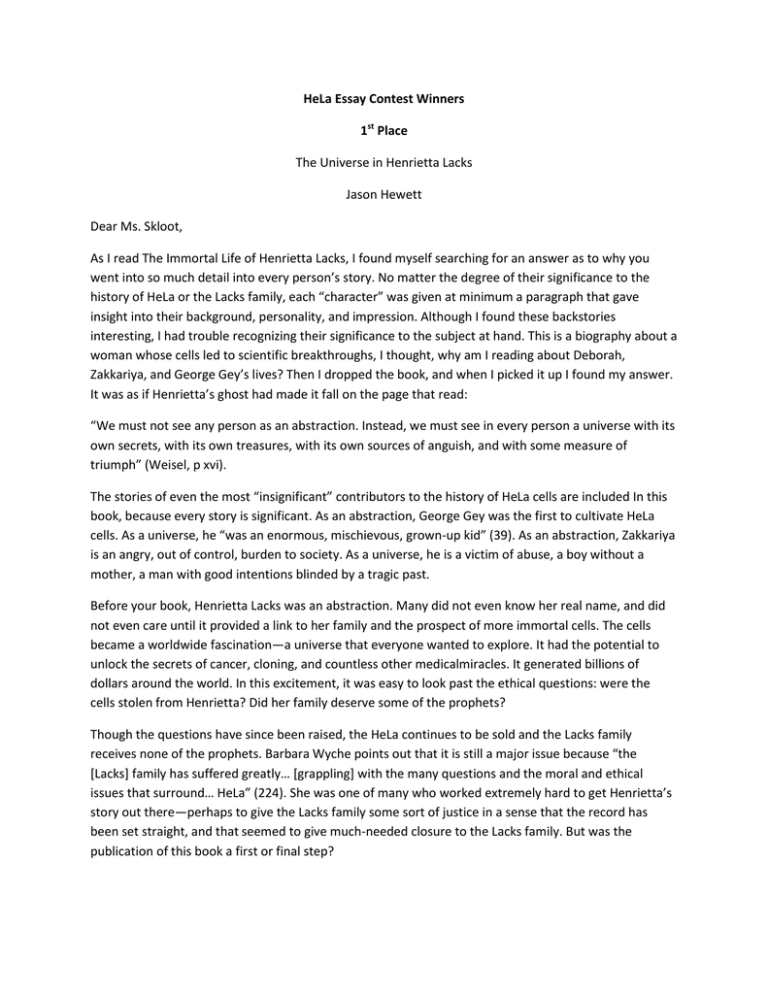
HeLa Essay Contest Winners 1st Place The Universe in Henrietta Lacks Jason Hewett Dear Ms. Skloot, As I read The Immortal Life of Henrietta Lacks, I found myself searching for an answer as to why you went into so much detail into every person’s story. No matter the degree of their significance to the history of HeLa or the Lacks family, each “character” was given at minimum a paragraph that gave insight into their background, personality, and impression. Although I found these backstories interesting, I had trouble recognizing their significance to the subject at hand. This is a biography about a woman whose cells led to scientific breakthroughs, I thought, why am I reading about Deborah, Zakkariya, and George Gey’s lives? Then I dropped the book, and when I picked it up I found my answer. It was as if Henrietta’s ghost had made it fall on the page that read: “We must not see any person as an abstraction. Instead, we must see in every person a universe with its own secrets, with its own treasures, with its own sources of anguish, and with some measure of triumph” (Weisel, p xvi). The stories of even the most “insignificant” contributors to the history of HeLa cells are included In this book, because every story is significant. As an abstraction, George Gey was the first to cultivate HeLa cells. As a universe, he “was an enormous, mischievous, grown-up kid” (39). As an abstraction, Zakkariya is an angry, out of control, burden to society. As a universe, he is a victim of abuse, a boy without a mother, a man with good intentions blinded by a tragic past. Before your book, Henrietta Lacks was an abstraction. Many did not even know her real name, and did not even care until it provided a link to her family and the prospect of more immortal cells. The cells became a worldwide fascination—a universe that everyone wanted to explore. It had the potential to unlock the secrets of cancer, cloning, and countless other medicalmiracles. It generated billions of dollars around the world. In this excitement, it was easy to look past the ethical questions: were the cells stolen from Henrietta? Did her family deserve some of the prophets? Though the questions have since been raised, the HeLa continues to be sold and the Lacks family receives none of the prophets. Barbara Wyche points out that it is still a major issue because “the *Lacks+ family has suffered greatly… *grappling] with the many questions and the moral and ethical issues that surround… HeLa” (224). She was one of many who worked extremely hard to get Henrietta’s story out there—perhaps to give the Lacks family some sort of justice in a sense that the record has been set straight, and that seemed to give much-needed closure to the Lacks family. But was the publication of this book a first or final step? All the issues and questions that have been raised by Henrietta’s situation that the Lackses have had to grapple with have been explained, but not necessarily solved. Deborah’s main goal seemed to be finding out who her mother and sister were and what had happened to them. Franklin Salisbury Jr. said “I understand that the family feels very abused, *w+e can’t give them money but I’m hoping this conference *held in Henrietta’s honor+ will set the historic record straight and help make them feel better, even if we are fifty years late” (257). This book not only sets Henrietta’s record straight, but all the records around hers’ straight. But one thing has remained unclear: was this book written primarily to satisfy the Lacks family’s need to know the truth, or to share something with the world that it too should know? Why is it so important that Henrietta’s story be told, or is it simply a matter of principle that everyone in the universe deserves to have their story told? Respectfully, Jason Hewett
